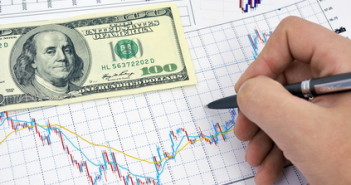Currency wars are going on for a long time. Everybody wants a weaker currency to encourage exports and to remain competitive.
However, a strong currency also has some advantages. Here are a few.
Some countries, like China, control their currency, some intervene in markets directly, such as Japan and and Switzerland. Others are busy with QE (US, UK) and the ECB has its form of indirect QE. Even countries which are considered to have real free markets are not totally ruling that out: complaints about a strong currency have been heard from Canada, Australia and New Zealand.
So, what is the positive side?
- Lower inflation: A strong currency lowers the cost of imported goods, enabling lower prices for consumers. This leaves more money in their pockets for local expenditure.
- Lower costs for some exporters: those exporters that import raw materials from abroad in order to make their products, pay less for those materials. This offers some compensation for lower competition due to the stronger currency.
- Acquisition Opportunities: A company from a country with a strong currency can buy a similar company or a supplier, in a country that has a weak currency. This enables the buying company to enjoy the strong currency in order to lower costs.
- Low funding costs for governments: By having a strengthening currency, flows from outside the country often go into local government bonds. This flow can lower the yield and enable the country with the strong currency to raise money at cheaper rates in the markets.
- Sense of wealth: While rising stock prices and rising home values have a stronger wealth effect, also a stronger currency helps: citizens of a country with a strong currency find it cheaper to take vacations abroad, improving their quality of life.
What do you think? Is your currency strong or weak? Should it rise or fall?
Further reading: 5 Most Predictable Currency Pairs
